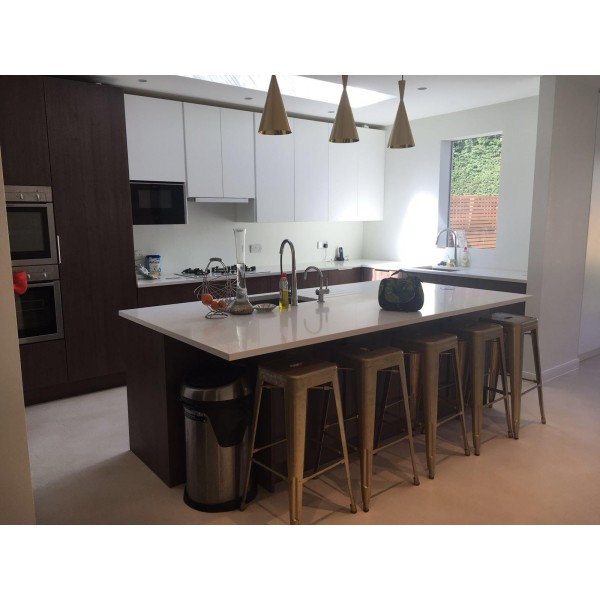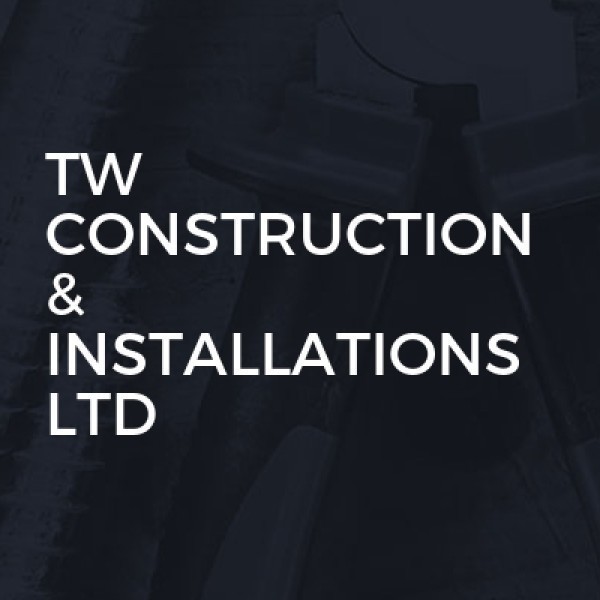Understanding the Role of Extension Builders in Wilmslow
Wilmslow, a charming town in Cheshire, is known for its picturesque landscapes and elegant homes. As families grow and lifestyles evolve, many homeowners in Wilmslow are opting to extend their homes rather than move. This is where extension builders in Wilmslow come into play. These skilled professionals help transform existing spaces into dream homes, adding value and functionality. Let's delve into the world of extension builders and explore how they can turn your vision into reality.
The Importance of Choosing the Right Extension Builder
Choosing the right extension builder is crucial to the success of your project. A reputable builder will not only bring your ideas to life but also ensure that the construction process is smooth and stress-free. When selecting a builder, consider their experience, expertise, and reputation in the community. It's essential to check references, read reviews, and perhaps even visit previous projects to gauge the quality of their work.
Experience and Expertise
Experience is a key factor when selecting an extension builder. Builders with a wealth of experience are more likely to handle unexpected challenges effectively. They have honed their skills over the years and are adept at managing various aspects of construction, from design to completion. Expertise in local building regulations and planning permissions is also vital, ensuring that your extension complies with all legal requirements.
Reputation and Reviews
A builder's reputation can speak volumes about their reliability and quality of work. Word of mouth is a powerful tool; ask friends and family for recommendations. Online reviews and testimonials can also provide valuable insights into a builder's professionalism and customer satisfaction. A builder with a strong reputation is more likely to deliver a project that meets or exceeds your expectations.
Types of Home Extensions
Home extensions come in various shapes and sizes, each serving different purposes. Understanding the types of extensions available can help you make an informed decision about what best suits your needs and budget.
Single-Storey Extensions
Single-storey extensions are a popular choice for homeowners looking to expand their living space without altering the overall structure of their home. These extensions can be used to create larger kitchens, dining areas, or even additional living rooms. They are generally more affordable and quicker to build compared to multi-storey extensions.
Double-Storey Extensions
For those needing more space, double-storey extensions offer a practical solution. These extensions add significant square footage to a home, providing additional bedrooms, bathrooms, or office space. While they require more investment and time, the added value to the property can be substantial.
Wrap-Around Extensions
Wrap-around extensions combine side and rear extensions to create a larger, more open-plan living area. This type of extension is ideal for homeowners looking to maximise space and create a seamless flow between indoor and outdoor areas. It often involves significant structural changes, so choosing an experienced builder is crucial.
Planning and Designing Your Extension
Before breaking ground, careful planning and design are essential to ensure your extension meets your needs and enhances your home's aesthetic appeal. Working closely with your builder and an architect can help bring your vision to life.
Setting a Budget
Establishing a realistic budget is a critical first step in the planning process. Consider all costs, including materials, labour, and any additional expenses such as permits or landscaping. It's wise to set aside a contingency fund for unexpected costs that may arise during construction.
Design Considerations
The design of your extension should complement the existing structure of your home while meeting your functional needs. Consider factors such as natural light, ventilation, and energy efficiency. An architect can help create a design that maximises space and enhances your home's overall aesthetic.
Obtaining Planning Permission
In Wilmslow, as in many areas, obtaining planning permission is a crucial step in the extension process. Your builder or architect can assist with the application process, ensuring that all necessary documentation is submitted and that your extension complies with local regulations.
The Construction Process
Once planning and design are complete, the construction phase begins. This stage involves several steps, from site preparation to the final touches. Understanding the construction process can help you manage expectations and ensure a successful project.
Site Preparation
Before construction begins, the site must be prepared. This involves clearing the area, setting up temporary structures, and ensuring that utilities are safely managed. Proper site preparation is essential for a smooth construction process.
Building the Structure
With the site prepared, the construction of the extension's structure can begin. This includes laying foundations, erecting walls, and installing roofing. Skilled builders will ensure that the structure is sound and meets all safety standards.
Finishing Touches
Once the structure is complete, attention turns to the interior and exterior finishes. This includes installing windows and doors, fitting electrical and plumbing systems, and applying paint or wallpaper. The finishing touches bring the extension to life, creating a space that is both functional and aesthetically pleasing.
Benefits of Home Extensions
Home extensions offer numerous benefits, making them an attractive option for many homeowners. From increased living space to added property value, extensions can significantly enhance your home and lifestyle.
Increased Living Space
One of the most obvious benefits of a home extension is the additional living space it provides. Whether you need an extra bedroom, a larger kitchen, or a home office, an extension can accommodate your growing needs without the hassle of moving.
Enhanced Property Value
A well-designed and executed extension can significantly increase the value of your property. By adding square footage and improving functionality, extensions make homes more attractive to potential buyers, offering a strong return on investment.
Personalised Living Environment
Extensions allow homeowners to create a living environment tailored to their specific needs and preferences. From custom layouts to unique design features, an extension can transform your home into a space that truly reflects your lifestyle.
Common Challenges and Solutions
While home extensions offer many benefits, they can also present challenges. Being aware of potential issues and how to address them can help ensure a successful project.
Budget Overruns
One common challenge is budget overruns. To avoid this, establish a clear budget from the outset and stick to it. Regularly review expenses with your builder to ensure costs remain on track. Having a contingency fund can also provide a buffer for unexpected expenses.
Delays in Construction
Delays can occur due to weather, supply chain issues, or unforeseen complications. To minimise delays, work with a reputable builder who has a track record of completing projects on time. Clear communication and regular updates can also help keep the project on schedule.
Design Changes
Changes in design during construction can lead to increased costs and delays. To avoid this, finalise your design before construction begins and resist the urge to make changes unless absolutely necessary. Thorough planning and consultation with your builder and architect can help ensure the design meets your needs from the start.
Frequently Asked Questions
- How long does a typical home extension take to complete? The duration of a home extension project can vary depending on the size and complexity of the extension. On average, a single-storey extension may take 3-4 months, while a double-storey extension could take 6-9 months.
- Do I need planning permission for a home extension in Wilmslow? Planning permission requirements depend on the size and location of your extension. It's best to consult with your builder or local planning authority to determine if permission is needed.
- How can I ensure my extension is energy efficient? Incorporating energy-efficient features such as double glazing, insulation, and energy-efficient appliances can help reduce energy consumption and lower utility bills.
- What should I look for in an extension builder? Look for a builder with experience, a strong reputation, and positive reviews. It's also important to ensure they have the necessary licences and insurance.
- Can I live in my home during the extension process? In many cases, you can remain in your home during construction, although there may be some disruption. Discuss this with your builder to understand the impact on your daily life.
- How can I finance my home extension? Financing options include savings, home equity loans, or remortgaging. It's important to explore all options and choose the one that best suits your financial situation.
In conclusion, extension builders in Wilmslow play a vital role in helping homeowners enhance their living spaces. By choosing the right builder and carefully planning your project, you can create a home that meets your needs and adds value to your property. With the right approach, a home extension can be a rewarding investment that transforms your living environment for the better.
























